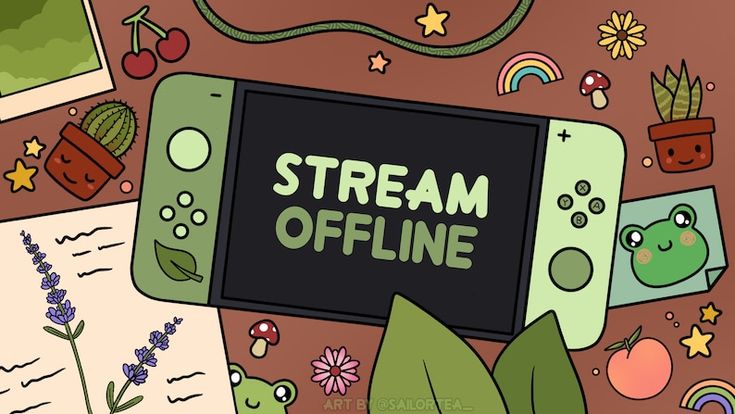The music sector has changed drastically from what it was in the last decade due to the use of streaming, mainly via services such as Spotify, Apple Music, Tidal, etc. The way we consume music has also changed; there is now instant access to millions of songs with instant gratification. As with most digital revolutions, it has benefited music consumers while creating intense streaming royalty controversies, which have made some artists feel undervalued and underpaid.
As the latest music industry shifts from buying physical records to streaming and playlists, the conversation around how artists get paid has come into focus. So, what’s got artists feeling frustrated and speaking out against the current streaming model?
The Royalty Problem: How Streaming Services “Pay” Artists
Let’s break down how streaming royalties work. When someone plays a song on a service like Spotify, that platform earns money from ads (for users who don’t pay) and subscription fees (for those who do). Once they’ve gathered that revenue, they distribute it to the rights-holders, which usually include record labels, songwriters, and publishers, before finally paying the artist.
Secondly, the per-stream payment is extremely small. A service like Spotify typically pays artists around $0.003 to $0.005 for each stream.
This means an artist must have millions of streams to make a living. For example, an artist needs 200,000 streams to earn around $1,000. Most independent musicians won’t earn 200,000 streams without the help of a major label (if they can even get that far).
For independent artists or those who don’t have the backing of a major label, it often feels like streaming royalties are just a tiny fraction of what they deserve. As these platforms keep growing and capturing more of the market, it only adds to the frustration for many artists who are starting to question whether this payment system is really fair.
The Unbalanced Payment System
One of the biggest gripes artists have is that the money generated from streaming is not shared fairly. Even though platforms like Spotify can brag about having millions of subscribers, the revenue from streaming primarily goes to record labels, which have agreements with the streaming services. After that, it’s up to the labels to decide how much of that money trickles down to their artists.
Independent artists and smaller labels do not get the same deal, so they only receive a percentage of whatever the agreements are struck between the record label and the streamer.
This payment structure has ruffled numerous feathers, as is the case with the rise of streaming monsters like Spotify. Take Taylor Swift and Adele, for instance. They’ve both openly criticized streaming services, arguing that they don’t provide fair compensation for artists’ hard work. Back in 2014, Swift made headlines when she pulled her entire catalog from Spotify, citing the platform’s meager payouts as one of her main reasons.
Even with A-list artists generating millions of streams, the compensation they receive is nowhere near similar to their revenue from a physical album sale. And where they do use streaming as a means to provide listeners an avenue to hear their music, it is not a dependable revenue stream for an artist classified as “up and coming” among numerous other classifications.
Lack of Transparency
The lack of transparency surrounding streaming royalties is another ongoing issue, including how streaming royalties are calculated and routed to their deserved parties.
Even though streaming platforms might reveal their payout structures and share bits about how they operate, many artists and industry folks like us still feel left in the dark when it comes to transparency in the business revenue share between those platforms, labels, and artists.
- Some experts have raised the question of whether or not streaming services are fully transparent in their revenue reporting, as well.
There is concern that the per-stream rate is distinctly lower than the true value of the art being streamed. In addition, playlists (often published by streaming platforms themselves) have become the main way streams are driven for artists; for smaller artists not included in high-profile playlists, this can really hold back the potential earnings from a playlist stream.
The Case for a Fairer System
Even though streaming royalty controversies spark plenty of debate in the music world, there’s a growing chorus of artists and industry insiders advocating for a fairer way to distribute these earnings.
Some proposed solutions include:
1. The move toward user-centric payment models (UCPM), where instead of pooling royalties from all users and then distributing, each artist should get paid on a UCPM basis; if you listen to an artist more, a larger share of the user fee will go directly to that artist.
2. There have been several pleas for streaming platforms to be more transparent about how they handle payments, so artists can see how their streams are contributing to their earnings.
3. Reducing Royalty Thresholds: Quite a few of them suggest using lower royalty thresholds so that artists could get substantial payouts. It seems that even a few minor adjustments to per-stream rates or setting some minimum payout limits could make a significant difference for independent musicians.
4. Payment to Independent Artists: Streaming platforms such as Bandcamp have been positively highlighted, which include for independent artists more lucrative conditions to share the revenue. An increased percentage of revenue that is spent on artists (and not labels or other intermediaries) should balance the situation.
The Impact of Streaming on the Music World
The impact of streaming on the music industry is a hot topic these days, especially when it comes to the low payments artists receive from streaming royalties. These discussions highlight not just the financial struggles but also broader trends shaping the music world.
The emergence of digital music consumption is now an essential part of our lives, and we can never go back to the old patterns of music consumption and music discovery. Streaming services have become the most important entry point to music access in the world.
It is a mixed blessing for the music industry, which expanded the reach of hearing music and eventually granted the opportunity for independent musicians to gain access to the listeners, but it has, however, concentrated the power in the hands of the few and dominant streaming giants. And there is more than just the possibility to be overwhelmed by the numbers in a system where quantity is king, even for exceptional talents from talented artists, by the mere number of streams alone.
Final Insights: On the Way to the New Era of Artists
The streaming royalty controversies are still not solved, but they have stirred up critically important debates about the importance of music in the digital world. The current way of music consumption, as enabled by streaming platforms, has transformed the methods of artist compensation, and ushering in new methods of artist compensation is preconditioned by the re-imagining of the actual future.
Conclusion words: Gazing into the future of the Artist
The question of streaming royalty controversies is far from being addressed, but it has already triggered the necessary debate on the importance of music in the context of digitization. This has transformed the consumption of music, although the future of music recorded compensation requires rethinking to match the pace of changes.
We, as listeners, are fond of conveniences, such as streaming, but it is essential to understand that we need to pay decent wages to the musicians who create the music that we love. Be that through persuading the streaming services to change or helping artists through services that offer higher payouts, the music industry should change in a manner that rewards not only creativity but also financial gains.
The fact that these issues are still being debated will someday have its turn to come in terms of the amount of royalties paid by the streaming services to begin reflecting the value of music rather than the value of keeping us all moving to the beat



